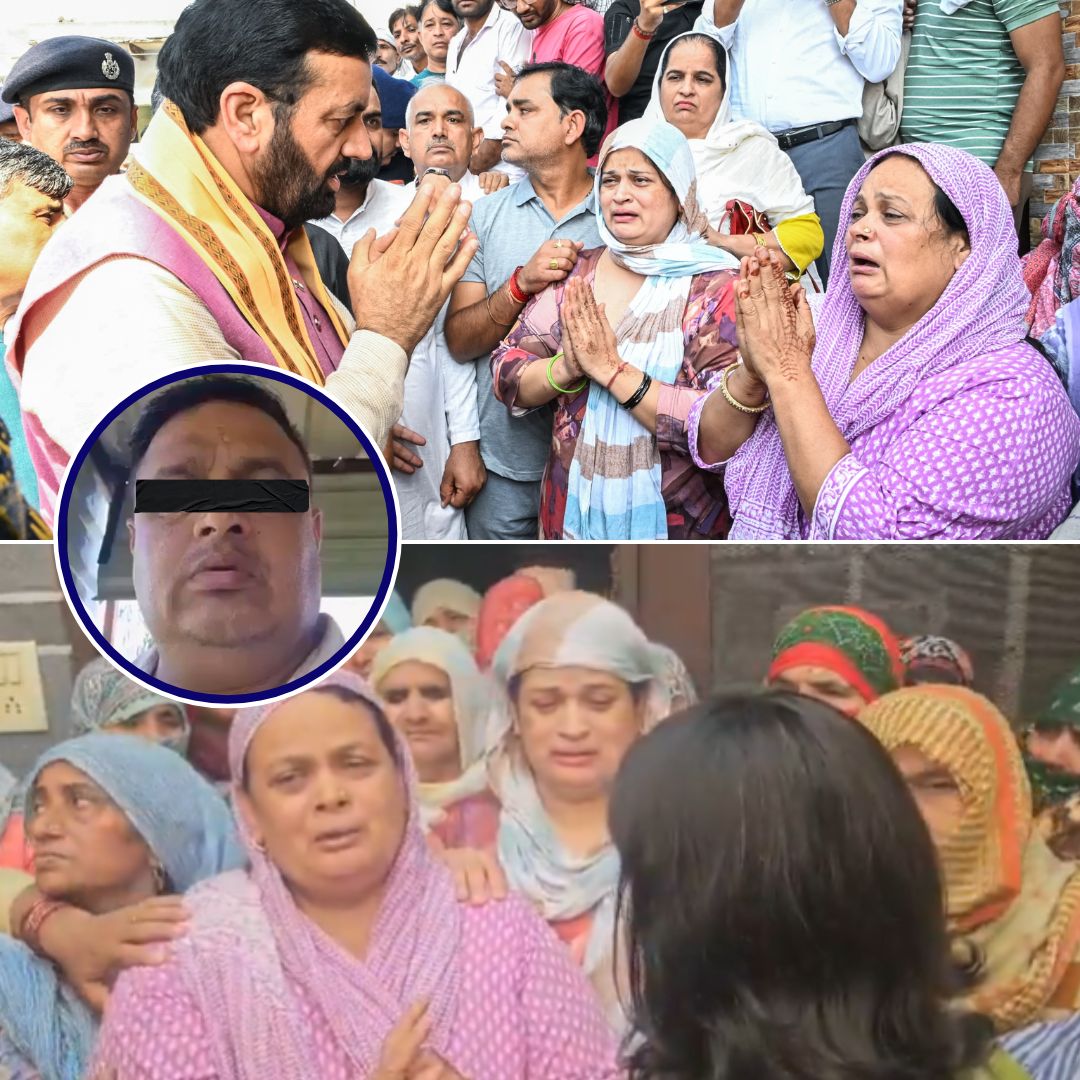ASI Sandeep Kumar Lather, who died by suicide on October 14, was cremated in his native Julana town in Jind after a postmortem in Rohtak. His family had refused to allow any postmortem or cremation until an FIR was registered against those named by him in a final video alleging corruption and harassment.
The FIR named IAS officer Amneet P Kumar, AAP MLA Amit Rattan, head constable Sushil Kumar, and one other. The family permitted postmortem and cremation only after the FIR was lodged. Sandeep’s eight-year-old son lit the funeral pyre amid a large procession attended by ministers, political leaders, and senior police officials.
Family Demands Justice
The cremation ceremony was a poignant event marked by deep sorrow. Sandeep’s wife was inconsolable, crying, “I just want my husband back.” Thousands gathered in Julana to pay their respects, with slogans against corruption echoing throughout the procession.
Sandeep’s sisters asserted that he was not a coward and called for a thorough investigation, describing him as an honest man wronged by the system. Senior Haryana ministers, opposition leaders, and senior police officials were present, showing solidarity with the bereaved family.
Background of Allegations and Tragic Circumstances
ASI Sandeep Kumar had accused senior officials, including the late IPS officer Y Puran Kumar and his family, of corruption and caste-based victimisation through a six-minute video and a handwritten note before his death.
His suicide followed closely after that of IPS officer Puran Kumar, intensifying public scrutiny into possible systemic corruption and harassment within the police department. The police registered a case based on his allegations and are conducting a detailed probe, including authenticating communications and reviewing the circumstances that may have pressured Sandeep into such tragic action.
The Logical Indian’s Perspective
The loss of ASI Sandeep Kumar Lather is a somber reflection on the costs of corruption, harassment, and the heavy burden carried by whistleblowers within institutions. While official inquiries must pursue justice transparently, it is vital for society to foster cultures of accountability and support for those who speak out against wrongdoing.












